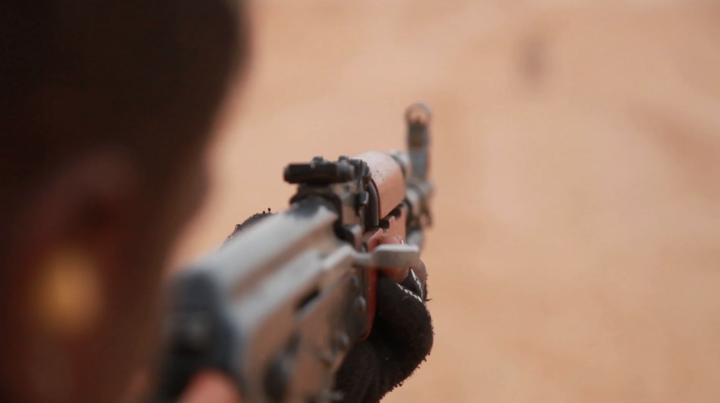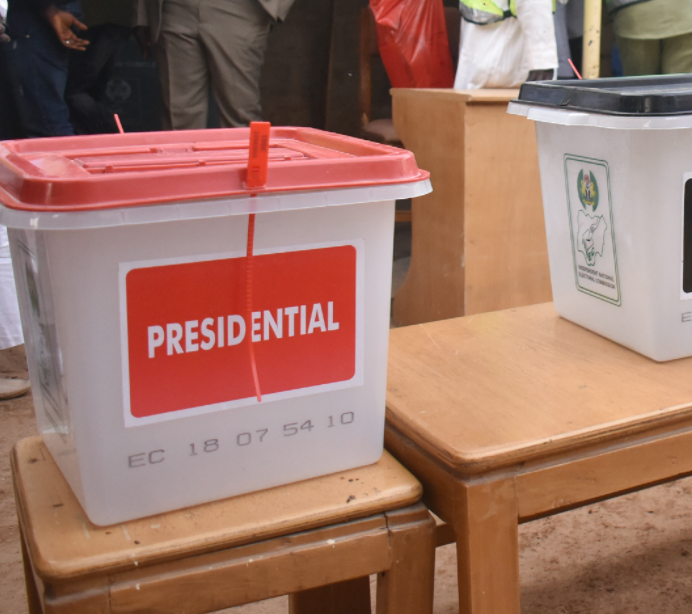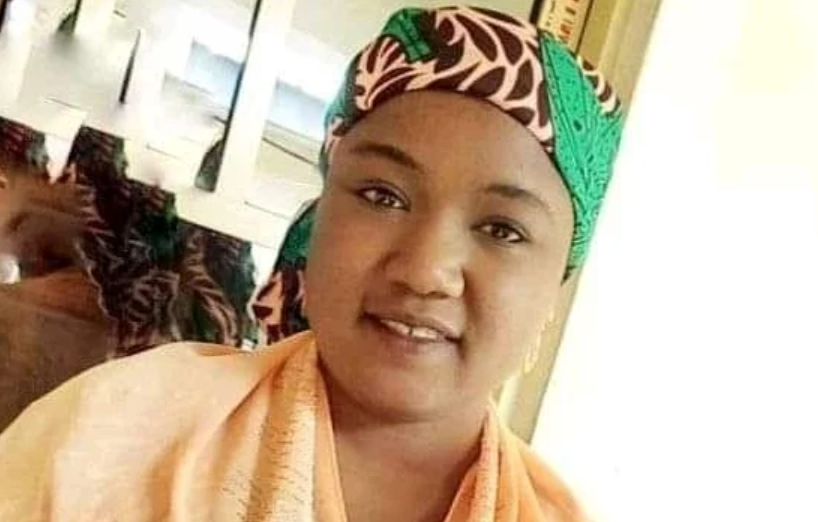File photo of a gunman
BY WEALTH DICKSON OMINABO
Abubakar Sani-Bello, governor of Niger, last week said over 200 people were killed in more than 50 attacks by terrorists across communities in the state in the first two weeks of this year 2022. The governor told journalists at the state house after meeting with President Muhammadu Buhari.
Giving details of the security crisis in his state, the governor revealed that “in January this year alone, we suffered not less than 50 reported attacks and loss of lives, between 1st and 17th January. Within the same period, not less than 300 communities have been invaded by bandits.
“The number of people kidnapped is 200, including three Chinese nationals. We also lost some security personnel. Their number is 25. Unfortunately, we lost about 165 civilians and 30 local vigilantes.”
Advertisement
Outside Niger state, Zamfara, Borno, Kebbi, Kaduna and Kastina have all been plunged into a state of deaths relating to insurgency and banditry, leading to the displacement of many citizens. In some parts of the north, some territories are being occupied and governed by non-state actors. There is also the report of non-state actors imposing levies and taxes on some residents in some villages in the north, and refusal to pay these taxes attract the wages of carnage, violence and death. The recent case of bandits killing about 17 residents of Dankade town in Danko Wasagu local government area of Kebbi state, as a punitive measure to residents for refusal to comply with their directives is worrisome; it betrays hope and explains the crisis of legitimacy within Nigeria.
In 2021, the Nigeria Defence Academy in Kaduna was attacked by bandits. This year, the Institute for War and Peace, a research Institute of the Nigerian Army University, located in Biu and the Police Training College in Gwoza — all in Borno state — have come under attack by non-state actors. After each attack, authorities of the state have come up with narratives of gallantry and triumphalism of the state against non-state actors in a bid to undermine the import of these attacks but these sophistries from the government have not ended the attacks or helped in protecting citizens from the miseries of insecurity and death.
In the south-east of the country, the weather has been that of fear and trembling. Unknown gunmen are dotting the streets of the zone with blood and violence. From Imo, Anambra, Ebonyi, Abia and Enugu, carnage and violence permeate the streets of many communities.
Advertisement
The sit-at-home orders issued by the leaders of the Indigenous People of Biafra (IPOB) are always enforced by non-state actors in the region. Citizens choose to comply with the directive as they cannot trust the capability of the government to protect their lives and properties. The Ebonyi state government has repeatedly appealed to residents to disregard and disobey the sit-at-home order, sometimes threatening to sanction defaulters. The threats are usually not taken seriously as residents, for many reasons, prefer to comply with orders from the non-state actors in order to avoid the consequences of their disobedience.
Today the Nigerian state looks helpless and confused on how to salvage the land from these nihilistic trends. The #EndSARS protests, prison breaks, secessionist agitations, banditry, terrorism, as well as the alarming violence and death across the country are all a manifestation of the crisis of legitimacy in today’s Nigerian state. So unfortunate is our reality today that some state actors have come to accept these crises as their new realities and their only options is to either tacitly work to pacify the non-state actors or indirectly comply with their orders.
Last year, the Anambra state government adopted Saturdays for school days following the weekly sit–at–home on Mondays declared by IPOB. The commissioner for information and public enlightenment, Don Adinuba, was quoted as saying that the decision of the state government became expedient owing to the reality in the region.
He said: “If we insist on going to school on Mondays under the present situation, the pupils and teachers might be harassed, which is what we do not want. You will recall an incident when an Anglican priest was killed because he allowed students to write exams on a Monday, while the motorcycles belonging to teachers were set ablaze by attackers.
Advertisement
“There is therefore the need to safeguard the life of everyone in the state. To us, this Saturday arrangement is a brilliant idea and it is the best alternative we have for now.”
Security, sovereignty and legitimacy are the livewires of any democracy. The multiple crises of security and legitimacy as currently witnessed in our country portends great danger for the sustenance of our democracy and country. These crises are a recipe for state failure and eventual state collapse.
Security is the major beam that holds a state, it is the foundation upon which governments are instituted among people. The primary responsibility of every government is to maintain security, law and order. Law and order are the basis upon which the legitimacy of a government is sustained.
In Nigeria and most parts of Africa, legitimacy is often conceptualised from the narrow frames of electioneering and politics, therefore making leaders suffer a deficit of trust which in turn affects their legitimacy and puts to question their power and authority.
Advertisement
Sustaining the legitimacy of a state cannot be achieved through coercion and military tactics. Legitimacy is derived through the people and sustained through mutual trust and civic engagement between government and citizens and this is often enhanced through good governance, equity and justice.
Ominabo is the communications officer at the Goodluck Jonathan Foundation
Advertisement
Views expressed by contributors are strictly personal and not of TheCable.
Add a comment






